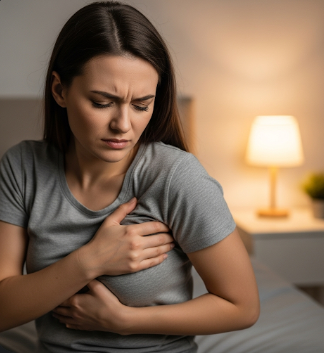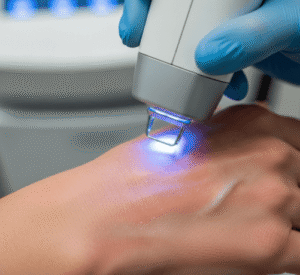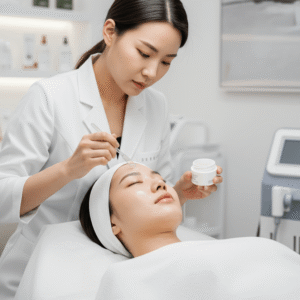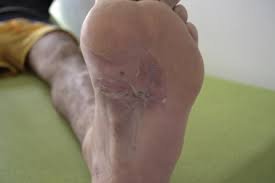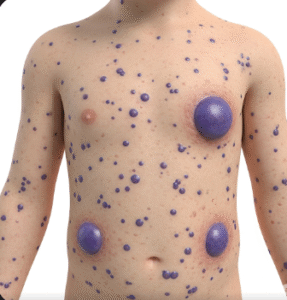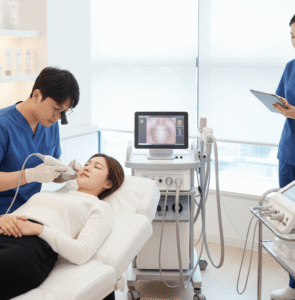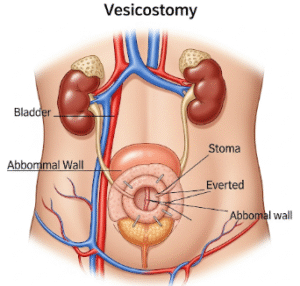Overview
Breast pain, also known as mastalgia, refers to discomfort or pain in the breast tissue, ranging from mild tenderness to severe, debilitating pain. It is a common condition experienced by women of all ages and can be cyclical (related to menstrual cycles) or non-cyclical (due to other causes). While most breast pain is benign, persistent or severe pain warrants medical evaluation to rule out underlying conditions, including infections, cysts, or rarely, breast cancer.
In Korea, breast pain is addressed in specialized breast clinics, hospitals, and women’s health centers, with a focus on accurate diagnosis, symptom management, and treatment of underlying causes. Korean healthcare provides personalized care plans, including lifestyle modification, medication, and minimally invasive interventions.
What is Breast Pain?
Breast pain is discomfort or aching in the breast tissue, nipple, or surrounding areas, which may affect one or both breasts. It is classified into two main types:
- Cyclical breast pain: Associated with hormonal changes during the menstrual cycle, usually affecting both breasts and correlating with the luteal phase
- Non-cyclical breast pain: Occurs independently of the menstrual cycle, often localized, and may be caused by trauma, infection, cysts, or other medical conditions
Other forms include extramammary pain, which is perceived in the breast but originates from the chest wall, muscles, or ribs.
Symptoms
Symptoms of breast pain vary based on the type and underlying cause:
- Tenderness, soreness, or aching in one or both breasts
- Sharp, stabbing, or burning pain in non-cyclical cases
- Swelling or heaviness before menstruation (cyclical)
- Nipple pain or sensitivity
- Localized lumps or masses in some cases
- Redness or warmth if associated with infection
- Discomfort during physical activity or bra pressure
Pain may be mild, moderate, or severe, affecting daily activities and quality of life.
Causes
Breast pain can result from a wide range of causes, including:
- Hormonal fluctuations: Estrogen and progesterone changes during the menstrual cycle
- Fibrocystic breast changes: Lumps, cysts, or dense tissue contributing to cyclical pain
- Breast infections or abscesses: Bacterial infections causing tenderness and swelling
- Breast trauma: Injury, surgery, or implants
- Medications: Hormone therapy, contraceptives, or certain antidepressants
- Musculoskeletal causes: Chest wall, muscle strain, or nerve irritation
- Rarely, breast cancer: Persistent, localized pain without cyclical pattern
Risk Factors
- Age: Most common in women aged 20–50
- Hormonal fluctuations: Premenopausal women are more prone to cyclical pain
- Pregnancy or lactation: Breast changes and engorgement may cause discomfort
- Previous breast conditions: Fibrocystic changes, cysts, or infections
- Use of hormone therapy or oral contraceptives
- Breast surgery or implants
- Obesity or high-fat diet, which can influence hormone levels
Complications
While breast pain itself is rarely dangerous, untreated or severe pain can lead to:
- Interference with daily activities or sleep
- Emotional distress, anxiety, or depression
- Delayed diagnosis of underlying conditions if symptoms are ignored
- Chronic discomfort requiring long-term management
- Impact on breastfeeding in postpartum women due to pain or infection
Prevention
Preventive strategies focus on hormonal balance, breast care, and lifestyle adjustments:
- Regular breast self-examination to monitor changes
- Proper support: Well-fitting bras to reduce mechanical strain
- Healthy diet and weight management
- Limit caffeine and high-fat foods that may exacerbate cyclical pain
- Stress management and regular exercise
- Prompt evaluation of new, persistent, or severe pain
Treatment Options in Korea
Diagnosis
Accurate diagnosis ensures appropriate management and exclusion of serious conditions:
- Physical examination: Checks for tenderness, lumps, or skin changes
- Ultrasound or mammography: Detects cysts, tumors, or structural abnormalities
- MRI: Used for high-risk or complex cases
- Laboratory tests: Hormone levels or infection markers if indicated
- Symptom tracking: Helps differentiate cyclical from non-cyclical pain
Medical Management
- Pain relief: Nonsteroidal anti-inflammatory drugs (NSAIDs) or acetaminophen
- Hormonal therapy: Adjusting oral contraceptives or hormone replacement therapy if appropriate
- Antibiotics: For breast infections or abscesses
- Topical treatments: Creams for localized pain relief
Minimally Invasive and Surgical Management
- Aspiration: For painful cysts or fluid-filled lumps
- Excision: Rarely required for persistent or symptomatic fibroadenomas
- Breast implant adjustment or removal if implants contribute to pain
Supportive Care
- Education on breast care and symptom tracking
- Lifestyle modifications: Diet, exercise, and stress management
- Psychological support for chronic pain or anxiety
- Breastfeeding guidance for lactating women
Prognosis
The prognosis for breast pain is generally excellent, especially when the underlying cause is identified and managed:
- Cyclical pain often resolves after menopause
- Benign structural causes respond well to conservative treatment
- Infections or cysts can be treated effectively with antibiotics or aspiration
- Minimally invasive interventions in Korea reduce recurrence and preserve breast tissue
- Persistent non-cyclical pain may require ongoing symptom management, but serious complications are rare
- Korean breast clinics provide comprehensive evaluation, advanced imaging, minimally invasive treatment, and supportive care, ensuring high patient satisfaction and improved quality of life
With state-of-the-art diagnostic tools, expert care, and personalized management, Korea offers safe and effective treatment for breast pain, addressing both physical and psychological well-being.

